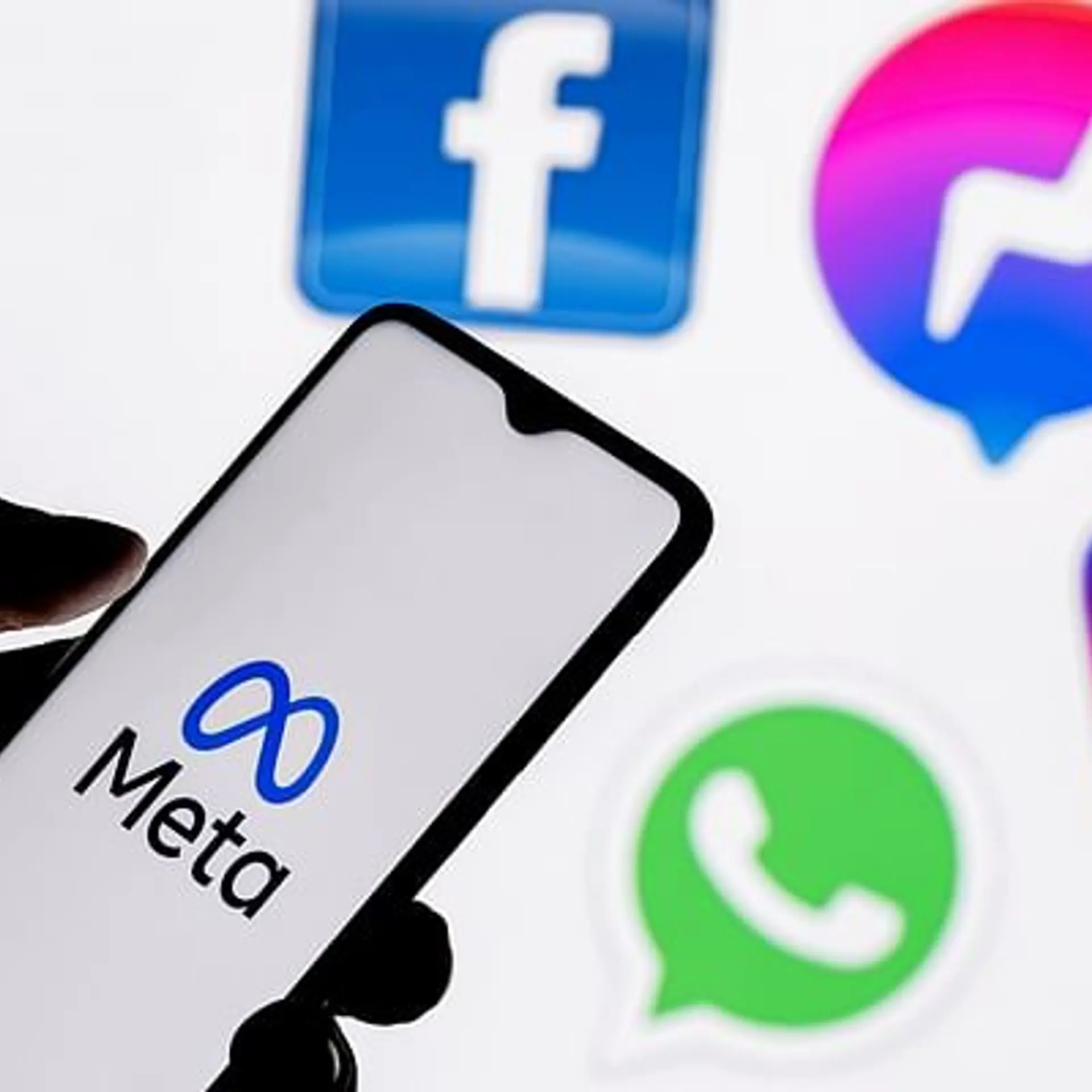Indian, Israeli innovators come together to boost affordable tech solutions in Indian healthcare
In a country that has just one government doctor for every 11,000 people, India’s healthcare system is surely ailing. No surprise then that it needs to be put on immediate life support.
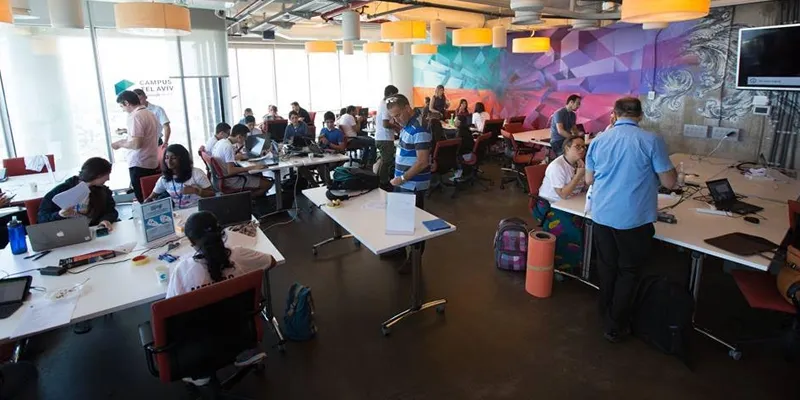
While in the urban areas thousands of people compete for one bed in government hospitals, in the rural and remote regions the situation is even more dismal, where villagers have to often travel hundreds of kilometres just to access a primary health centre.
In its National Health Profile, 2015 report, the Central Bureau for Health Intelligence shared some alarming data about the country’s health services and infrastructure. According to the report, India spends less of its GDP on health than some of the world’s poorest countries.
In such a situation, then, any solution to mitigate these challenges has to be affordable for the majority of the population.
Med4Dev hackathon
In a unique initiative, the first India-Israel hackathon, Med4Dev, by the Tel Aviv-based Pears Program for Global Innovation at Tel-Aviv University, brought together innovators, developers, entrepreneurs, and healthcare experts from the two countries to collaborate on finding low-cost solutions to India’s healthcare problems. YourStory was the media partner.
Over 36 hours, more than 600 people and 96 teams across Mumbai, Hyderabad, Bengaluru, and Tel Aviv came together in a non-stop hackathon from July 22 to 24, to arrive at breakthrough affordable tech solutions for India’s poor.
Nine challenges were posed by Indian foundations, hospitals, and other partners aimed at solving issues related to telemedicine, diagnostics, and monitoring solutions for vulnerable populations in rural India.
Among the ideas presented were a toothbrush that detects anaemia, apps to monitor food intake of infants, and a smart medicine box to remind patients to take their medication.

The idea for such a multi-city, two-nation hackathon was largely collaboration for a greater good. The aim was to expose Israeli innovators to the challenges of emerging markets.
According to Hilly Hirt, Deputy Director, Pears Program for Global Innovation, “We believe that by bringing the Israeli and Indian innovation ecosystem closer, we can disrupt the way low-income consumer’s health needs are met.” She felt that Med4Dev was the beginning of what she hoped would be a journey together, “to create a pipeline of new ventures that have the power to transform lives.”
Indian winners
Hyderabad saw the highest participation, and two winning startups (Care n Grow, a T-Hub startup, and Thought Clinic) created solutions that ranged from a non-invasive, on-the-go, low-cost, and scalable haemogram that will provide on-the-spot diagnosis of anaemia, to providing a counselling platform for cancer patients even in rural areas without high-speed internet.
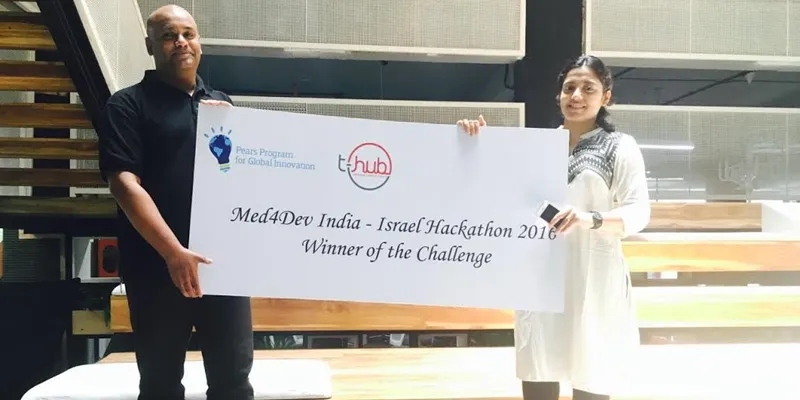
Care n Grow received a cash prize of $1,500 (Rs 1 lakh), while both winning teams won a 45-day mentoring package, a trip to Tel-Aviv for one week fully-paid acceleration, a spot in India's leading accelerators (T-Hub and Villgro), and the opportunity to pitch their idea to some of the most influential investors. You can view Care n Grow winning pitch here.
Jay Krishnan, CEO, T-Hub, said, “In the words of Redi Hoffman, ‘No matter how brilliant your mind or strategy if you’re playing a solo game, you’ll always lose out to a team.’ Our partnership with one of the hotbeds of innovation, Israel, was built along these contours a couple of months ago. The Med4dev hackathon was an intent to try and source amazing yet simple ideas, put together great teams and focus on execution of a small sub-set of winners. I hope this is the first step in the direction of fostering a great relationship with Israel and, more importantly, creating the roadmap to solving real challenges in India.”
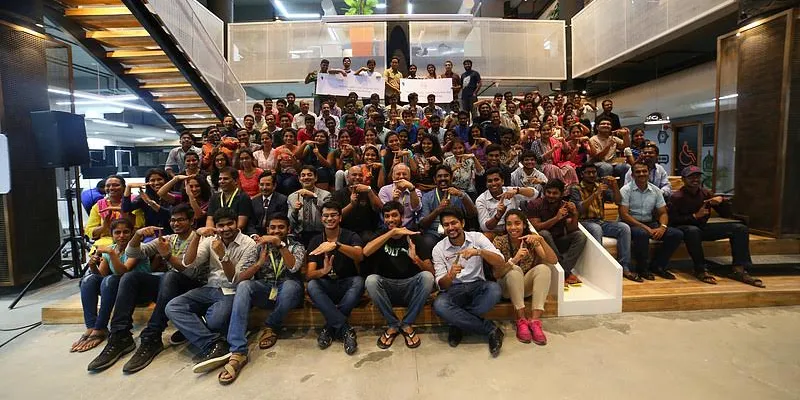
In Mumbai, the Rs 1 lakh cash prize for the best promising idea was won by a team, consisting of Dr Varun Kommalapti and Rahul Bisht, for designing a system for monitoring the patients' adherence to treatment through Smart Code Remote Monitoring System (SCRMS) for IMS Health.
Of the other two top teams, one comprising Ravinder Nain, Parag Sathye, Mihir Shahani, Vivek Iyer, and Shuhaid Lambe designed a paperless tracking system of children's immunisation using biometrics for Doctors For You. The other young team of Subhed Chavan and Suraj Anchan was applauded for their innovative website with a spiritual touch for crowd funding. Their idea was to improve access to funding for cancer treatments for Manipal hospitals.
Team Thea was the winner from Bengaluru of challenge number eight which related to managing the side effects of chemotherapy for patients in remote areas. You can view their pitch here.
A dash of Bollywood in Tel Aviv
On the Israeli side, from the nine challenges, two Israeli teams won first place with their projects about food monitoring systems for infants (proposed by Naandi Foundation) and hearing impairment screening and diagnosis for rural populations (proposed by Medtronic). E-Health Ventures gave a special prize to the most innovative Israeli team, which was working on the challenge on anaemia diagnostics. All teams won $1,500 cash prize each.
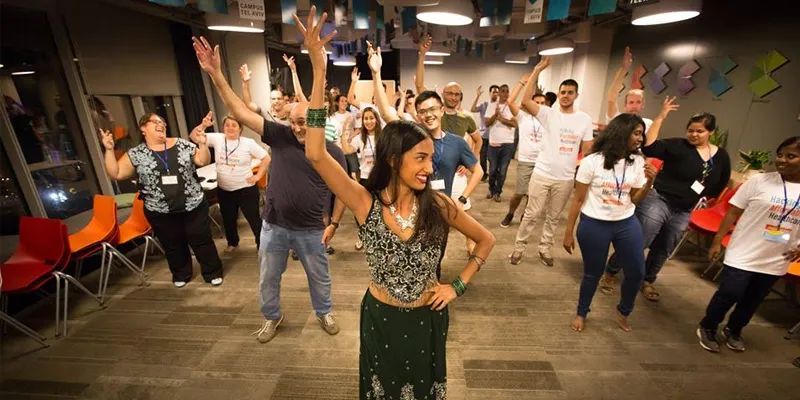
The Israeli teams received support from more than 50 top industry mentors spread across India and Israel via face-to-face and online sessions throughout the hackathon weekend. The Israelis made the most of this India connection with some energetic Bollywood dancing, yoga sessions to relax, and feasting on a spread of curries and Indian snacks for that extra zing.
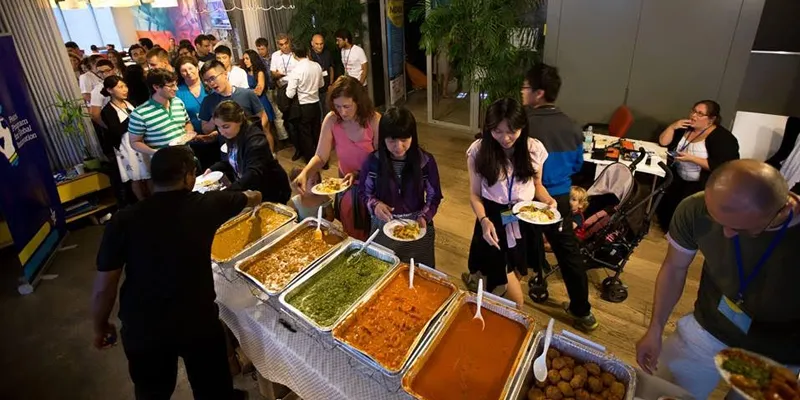
At the opening event in Tel Aviv on July 22, Indian Ambassador to Israel Pavan Kapoor said India and Israel have great talent in innovation and entrepreneurship, “but we need to bring them together and do more. The challenges for healthcare in India are amazing and enormous. We have excellent healthcare and it’s also very affordable by western standards, but it is not necessarily accessible for a number of people particularly in remote and rural areas in India. And that's where I think you could really come up with solutions.”
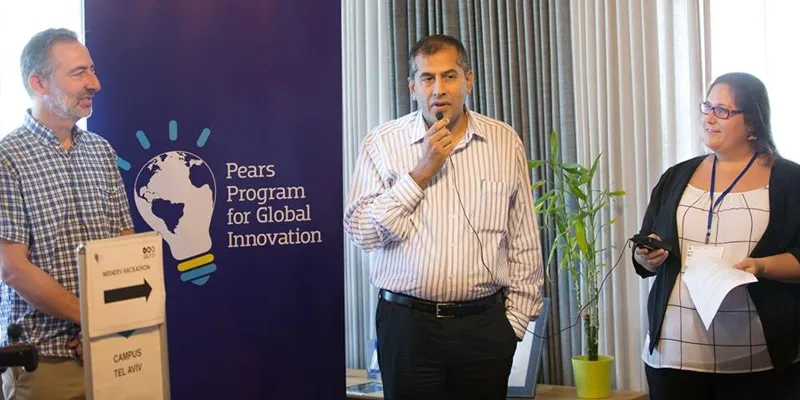
Referring to the nine challenges for Indian healthcare posed at the hackathon, Saul Singer, co-author of the bestselling novel Start-Up Nation, said they were a "huge gift" for the Israeli teams.
Here are the video pitches from the winning teams.
Challenge #1 – Anaemia diagnostic test for young girls
Care n Grow (Hyderabad) https://www.youtube.com/watch?v=b7WeMugP4XU&feature=youtu.be
Challenge #2 - Mobile solution to monitor infant weight with real-time information. Has an educational component. Team E (Tel Aviv) https://www.youtube.com/watch?v=Q4AOJKEtNn0
Challenge #3 - An easy to use android app for quick diagnosis of hearing impairments that can work in all locations without internet. Team X (Tel-Aviv) https://youtu.be/mCFm8rdD6cs
Challenge #4 -- Real-time, personal monitoring device for pregnant women in remote areas
Team Genesis from Bengaluru https://www.youtube.com/watch?v=sH08CYaiX-c&feature=youtu.be
Challenge #5 -- Smart pills and digestible. Team 17 from Mumbai https://youtu.be/V49FbxSWdw8
Challenge #6 – Improving access to funding for cancer treatments. Team 22 from Mumbai https://youtu.be/zCqIXPBcBMw
Challenge #7 – Psychological counseling platform for cancer patients.
The Thought Clinic (Hyderabad)
Challenge #8 – Managing the side effects of chemotherapy for patients in remote areas.
Team Thea (Bangalore) https://youtu.be/APx7FVaX32o
Challenge #9 - Team 19 (Mumbai)
https://www.youtube.com/watch?v=tb0z-d5ytxc&feature=youtu.be
Challenge #9 - Runner up Team C (Tel-Aviv ) A three-step, dumb mobile solution to track vaccination history.
https://www.youtube.com/watch?v=s8yNsg0c8PE






